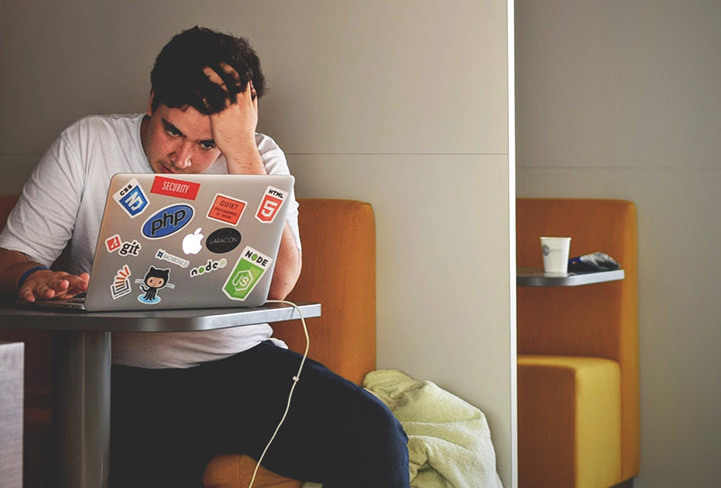In school, “exams” were the most anxiety-inducing time. I’d work hard every semester in anticipation of earning good grades, but anxiety usually manifested as headache, loss of appetite, or sleeplessness. The symptoms worried me and affected my grades.
Nowadays, life is impacted by political and social issues, financial uncertainty, and natural disasters that can cause anxiety disorders such as panic attack, OCD (Obsessive Compulsive Disorder), and PTSD (Post Traumatic Stress Disorder), among others.
According to the Anxiety and Depression Association of America, anxiety disorders affect 40 million people in the U.S. every year. The disorders develop from a complex set of risk factors, brain chemistry, personality and life events.
Anxiety can be time-consuming and painful, which is why I formulated the acronym “PAINLESS,” that comprises eight strategies to cope with anxiety quickly every time it grips me.

1) Plan - Often my daily activities cause a lot of stress and anxiety, making me second guess my abilities. “What if I cannot meet the deadline, what will happen if I’m late to the meeting, or what if I forget an item on the grocery list?”
I learned to counteract this form of anxiety with adequate planning, like making a checklist every morning, and gradually working down that list throughout the day.
In some cases preparation alongside planning is crucial to stop anxiety in its tracks. For instance, you have an important presentation at work that could be stressful. Instead of preparing one or two days prior, break down the material into smaller chunks, set aside some time in your daily schedule, and find a quiet place to rehearse. Knowing your material well will ease anxiety and help you get enough rest the night before.
2) Accept - The most common reasons why people hide their anxiety are fear, shame, hopelessness, and distrust. But coming to terms with anxiety is winning half the battle. Talk to your close friend, family member or partner about the causes for your anxiety, and that person could be a sounding board or possibly suggest some solutions. When your anxiety level is unbearable, consult a counselor or therapist who has proven medical approaches to treat the condition.
3) In the moment - Often thinking about a painful past experience or worrying endlessly about the future makes you anxious. It seems impossible not to let your thoughts run wild. However, most thoughts are just hypothetical. One helpful way to quiet down my mental chatter is to take a long deep breath through the nostrils and exhale through the mouth, and then repeat the process at least five or six times. Taking a short walk while doing this technique brings my mind back to the present and soothes my nerves.
4) No to drugs - According to Dr. Joseph Mercola, osteopathic physician and New York Times bestselling author, antidepressants increase your risk of heart disease, stroke and suicidal thoughts. Antidepressants cause serotonin to remain in your nerve synapses longer, interfering with immune cell sign and T-cell growth.
But, according to a review from John Hopkins University, just 30 minutes a day of meditation can lower anxiety and depression levels up to 38%, the same amount as antidepressants.
5) Lower your Expectations - I used to be a competitive person until a few years ago. My goal was to win all the public speaking contests that used to put a lot of pressure on me. These increased expectations both from myself and others. But I didn’t win until I changed my goal from winning to first connecting with the audience. This change in the attitude and lowered expectation alleviated my anxiety, and I’ve also earned more love from the audience.
It is common to feel high expectations from your spouse, family or colleagues. But raising the bar only leaves you distressed. Instead, set more practical goals and have realistic expectations that will keep anxiety at bay.
6) Exercise - University of Georgia researchers reported a 20% decrease in anxiety symptoms like worrying and nervousness among people who exercised regularly, compared to those who didn’t. Aerobic workouts such as swimming, walking or jogging are great exercises for reducing anxiety.
7) Service - Consider engaging in a volunteer activity that may take your mind off of your problems for a while. Since last October I’ve volunteered to lead youth leadership programs at local high schools. Not only have I honed my knowledge, but I’ve also have helped these students gain a new skill. The decision to serve has filled me with a level of contentment I’ve never felt before.
8) Savor - Instead of letting anxiety occupy your mind and deplete your energy. Let yourself savor life’s little joys, like listening to your favorite music, catching up with old friends or enjoying a double fudge sundae without worrying about calories. Maybe your anxiety, like the calories, will not melt away on its own, but a frequent dose of enjoyment will help in your struggle with anxiety.
When things don’t go your way, “PAINLESS” strategies are a good antidote to combat rising anxiety.
By Swathi A. K., a freelance writer based in Orange County, California. When she is not running after her 2 yr old daughter, she writes movie reviews and news stories, meditates and sings in the bathroom.





























